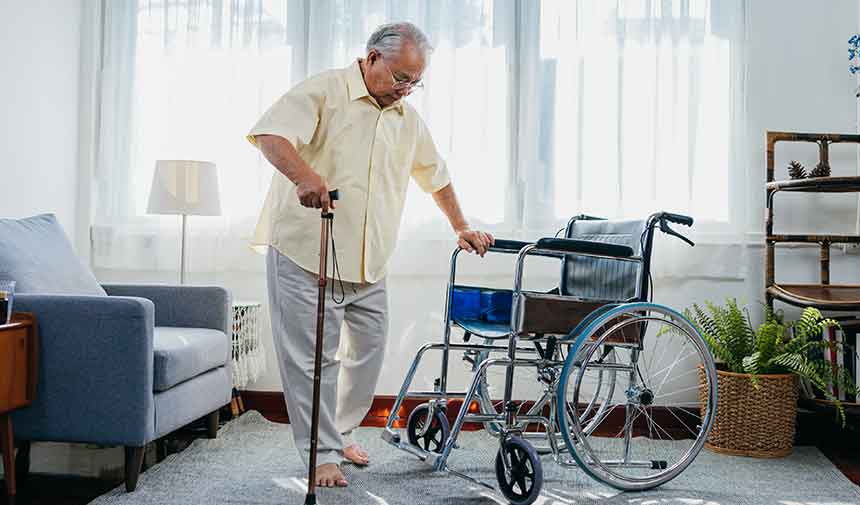Old age is a period when individuals experience the feeling of loneliness more intensely due to changes in their social environment and health problems. Long-term loneliness can lead to various health problems in the elderly, and the risk of stroke has an important place among these problems. In this article, we will examine how long-term loneliness increases the risk of stroke in the elderly, the reasons for this situation and the measures that can be taken.
Long-term loneliness and its effects on health
Loneliness is an emotional state that an individual feels when he/she lacks social relationships or when existing relationships are unsatisfactory. Loneliness in older people can have serious negative effects on physical and mental health. Long-term loneliness can lead to weakened immune system, mental health problems such as depression and anxiety, sleep disorders and cardiovascular diseases.
The Relationship Between Loneliness and Stroke Risk
Research shows that loneliness increases the risk of stroke. This relationship can be explained by several different mechanisms:
Stress and Inflammation:
Loneliness can increase chronic stress levels. Chronic stress can cause inflammation in the body, leading to damage to blood vessels. This is an important factor that increases the risk of stroke. In addition, stress hormones can increase blood pressure, further increasing the risk of stroke.
Decreased Physical Activity:
Elderly individuals experiencing loneliness may be less physically active because they lack social interactions. Lack of physical activity can lead to health problems that increase the risk of stroke, such as obesity, high blood pressure and diabetes.
Unhealthy Lifestyle Habits:
Loneliness can also lead to unhealthy lifestyle habits. For example, living alone may lead to irregular diet, excessive alcohol consumption or smoking. These habits are important factors that increase the risk of stroke.
Mental Health Problems:
Loneliness can cause mental health problems such as depression and anxiety. These conditions can increase the risk of stroke by negatively affecting the general health status of the person. Depression can make healthy lifestyle choices and compliance with treatment difficult, especially in older individuals.
Precautions that can be taken
Various measures can be taken to reduce the risk of loneliness and related stroke in elderly individuals:
Strengthening Social Connections:
Strengthening the social connections of elderly individuals plays an important role in reducing the feeling of loneliness. Regular communication with family members, friends and neighbours, participating in social activities and attending community centres can increase social interactions.
Participation in Support Groups:
Support groups and voluntary organisations can be useful for older people experiencing loneliness. These groups enable individuals with similar experiences to come together to receive support and strengthen their social ties.
Encouraging Physical Activity:
Regular physical activity can improve overall health as well as increase social interactions. Joining walking groups, going to yoga or dance classes can help older individuals both maintain their physical health and strengthen their social bonds.
Promote Healthy Lifestyle Habits:
Healthy lifestyle habits such as healthy eating, regular sleep and stress management are important in reducing the risk of stroke. Older individuals need to be supported by family members and health professionals to adopt and maintain these habits.
Mental Health Support:
Elderly individuals with mental health problems such as depression and anxiety should seek professional help. Psychotherapy, counselling and, if necessary, medication can improve their mental health status and reduce feelings of loneliness.
Conclusion
Long-term loneliness in the elderly is an important factor that increases the risk of stroke. Strengthening social ties, encouraging physical activity and adopting healthy lifestyle habits can be effective in reducing this risk. Families, communities and health professionals should support older people to cope with loneliness and lead a healthy life. In this way, the risk of stroke can be minimised by improving the quality of life of elderly individuals.



